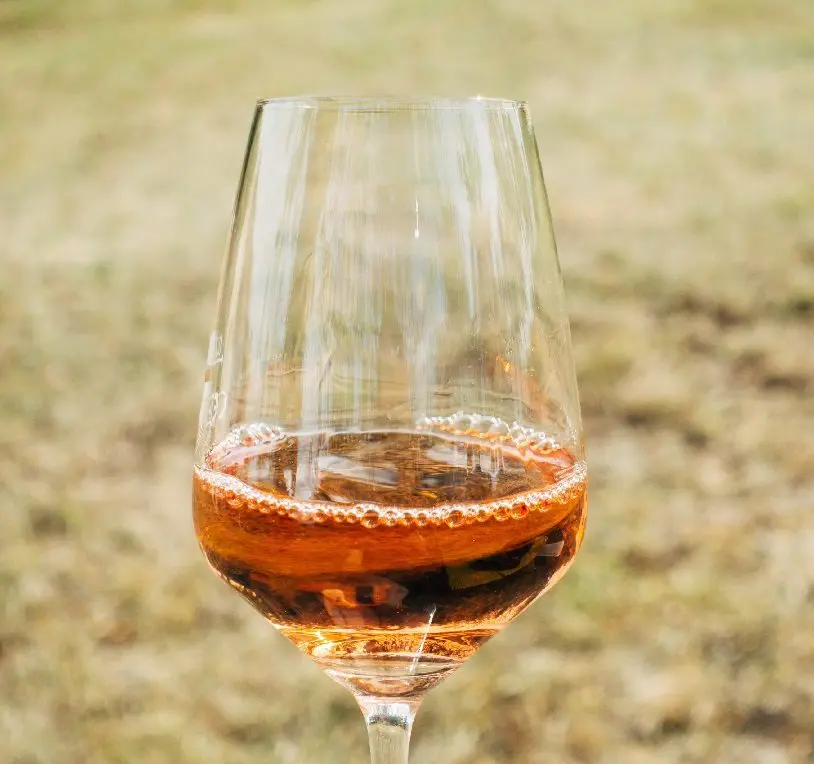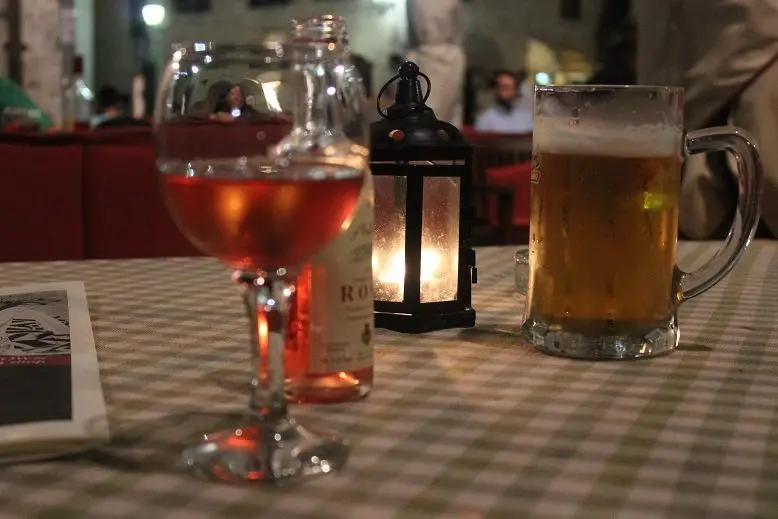Contents
Beer and wine have long been divided into two camps of those who like to relax over a glass. The debate about which drink is better has not subsided over the years. Today, it is well known exactly how each type of alcohol affects the body, and scientists have concluded that moderate drinking reduces the risk of developing cardiovascular disease. Next, we will figure out which is healthier – wine or beer, and what are the differences between them.
Technology difference
Classic beer is brewed with hops, grains, yeast and water. In most cases, barley is used as a raw material, which is germinated, dried and crushed. The crushed grain is then mixed with hot water and heated in stages to release the sugars. The filtered wort is brewed with the addition of hops, yeast is added and the future beer is placed in a fermentation tank. During maturation, the sugars break down and saturate the drink with ethanol and carbon dioxide. At the final stage, the beer is filtered and most often pasteurized to extend its shelf life.
Any sweet fruit can serve as a raw material for wine, but grapes, which are pressed on presses, are mainly used in winemaking. Then the pulp is separated from the must and left to ferment. The process takes place at the expense of “wild” or added yeast. Primary fermentation takes place in open containers and takes several days, then the must is placed in closed tanks and aged for 3-4 weeks. After readiness, the young wine is filtered and clarified, and its further processing depends on the type of drink.
At first glance, the processes are similar, but in reality there are significant differences:
- winemakers and brewers use fundamentally different raw materials and yeasts (strains for making wine appeared only in the 1970s, while beer houses were “domesticated” more than a century ago);
- grape must is not boiled so as not to lose its fruity aroma, and hops give off bitter aromatic notes just during cooking;
- there is no carbonization process in the wine material, so the wine is not saturated with carbon dioxide (an exception is champagne).
The chemical composition of drinks also varies. Beer is high in B vitamins, in a form that the body can easily absorb, and the high silicon content makes the beer good for bones.
A feature of wine is a high concentration of polyphenols, natural antioxidants that protect cells from premature aging and inflammation. Although there are fewer polyphenolic compounds in beer, both drinks are saturated with trace elements that have a positive effect on the body.
Beer or wine – which is healthier?
Wine is a component of the traditional Mediterranean diet. Despite the fact that French cuisine is rich in fats, this country has a low mortality rate due to cardiovascular disease.
The authoritative medical journal The Lancet in 1992 published the results of a study that confirmed that wine, when consumed in moderation, lowers cholesterol and prevents clogging of blood vessels. Scientists attributed the effect to resveratrol, a powerful antioxidant found in the drink.
Beer has a worse reputation as it is traditionally associated with being overweight and not very healthy. However, in 2015, an international team of scientists concluded that beer is no less good for the heart than wine. D. Panagiotakos, professor at the Department of Dietetics at the Greek University of Harokopio, has studied the long-term effects of alcohol on the body and believes that beer and wine are equal in their ability to prevent cardiovascular disease. The scientist connects the opinion prevailing in society about the dangers of beer with the fact that its effect has previously been little studied.

drunkenness and hangover
The type of drink is crucial when it comes to the speed of intoxication. A glass of wine or a bottle of lager contain roughly the same amount of ethanol, but the amount of time it takes for alcohol to enter the bloodstream varies.
In an experiment conducted at the University of Texas, researchers determined that wine makes a person drunk on average in 52 minutes, while beer takes 62 minutes. Scientists have concluded that a foamy drink hits the head later than wine.
An unpleasant consequence of libations is a hangover, which is associated with dehydration and cell poisoning with alcohol breakdown products. Narcologists believe that porter, stout and pale ale cause more severe consequences in the morning than pilsner, due to the characteristics of fermentation and high strength.
In general, experts tend to believe that beer and wine are approximately the same in terms of the degree of hangover, but research in this area is not yet fundamental enough to draw unambiguous conclusions.
Nutritional value and taste
On average, beer has fewer calories than wine. If we take into account the nutritional value of a light lager, then it is no more than 45 kcal per 100 ml, for comparison, in 100 ml of dry wine – 64 kcal. But here you need to consider that beer is usually drunk in large quantities.

The common myth about the “beer belly” has nothing to do with reality; moderate drinkers do not risk gaining weight due to the use of a foamy drink. Excess weight is associated with malnutrition and alcohol excess, in addition, plant estrogens in beer are not able to have a serious effect on the male body.
It is generally accepted that wine has a more refined bouquet, but many beer lovers do not agree with this. Small businesses produce a huge variety of craft hops, and brewers have learned how to achieve different flavors by combining hop varieties. In addition, carbonization helps to capture the full range of bitter tones inherent in beer.
A foamy drink is mistakenly considered cheap and “plebeian”, since the cost of premium varieties can exceed the price of quite worthy domestic and even imported wines. It is difficult to find elite beer on the shelves of supermarkets, it is sold only in specialized stores. The leading position in terms of prices is occupied by Belgian brands: Delirium, Straffe Hendrik, Gulden Draak.
Combination of both drinks
Drinking beer after wine is considered a bad idea. Sayings about the dangers of such a sequence exist in German, Spanish and Belgian folklore. Russian traditions prescribe the use of alcoholic beverages as the strength increases in order to avoid a hangover. However, this is nothing more than another misconception.

In 2019, the American Journal of Clinical Nutrition published the results of an experiment by scientists at the University of Cambridge, who found that the severity of a hangover is affected not by the order of drinking two drinks, but by the amount of alcohol consumed.
Beer can speed up and intensify intoxication because it contains carbon dioxide, which promotes the rapid absorption of alcohol into the bloodstream. Experts do not recommend mixing drinks that are made from different types of raw materials, as such a cocktail overloads the liver, making it difficult to break down ethanol and remove it from the body.









